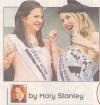|
|
| Blog |
 |
| Archive |
|
|
|
|
| Blog |
| To find an archived article, simply click on Index and scroll the subject titles, or do a Ctrl-F search |
TALLRITE BLOG
You can write to me at
blog2-at-tallrite-dot-com |
||||||||||||||||||||||||||||||||||||||||||||||||||||||||||||||||
| “Ill-informed and Objectionable” Comment by an anonymous reader | ||||||||||||||||||||||||||||||||||||||||||||||||||||||||||||||||
| For some reason, this site displays better in Internet Explorer than in Mozilla Firefox | ||||||||||||||||||||||||||||||||||||||||||||||||||||||||||||||||
| July 2007 | ||||||||||||||||||||||||||||||||||||||||||||||||||||||||||||||||
|
|
||||||||||||||||||||||||||||||||||||||||||||||||||||||||||||||||
|
||||||||||||||||||||||||||||||||||||||||||||||||||||||||||||||||
|
ISSUE #158 - 29th July 2007 [512+384=896]
|
||||||||||||||||||||||||||||||||||||||||||||||||||||||||||||||||
|
Human Rights Without Responsibilities - A Car Without Brakes I have long felt uncomfortable about the slew of Human Rights legislation that has cropped up in recent years, and even more uncomfortable about admitting this. Of course I support - as I suspect most of us in the West do - the notions that ...
This is the perfectly reasonable essence of the human rights convention, first drawn up by the Council of Europe back in 1950, which many EU countries have incorporated into their national law. Therefore anyone who objects must ipso facto be a cretin of flog-'em and hang-'em persuasion. And yet. All kinds of people have won cases by applying human rights laws of either their own country or the EU. Recent rulings in the UK (which adopted the convention in 1998), based on human rights laws, have included ...
In my view, many of these cases look pretty odd, though since I'm not privy to the nitty-gritty, I am not really in a position to say the decisions were as wrong as they instinctively feel. But it seems to me there is one gaping void in all modern legislation of rights, court-cases concerning rights, popular debate about rights. Where do you ever hear about people's responsibilities and duties? Is that a deafening silence that roars? For example, that convention contains 59 articles, divided up as follows
Not a word about an individual's responsibilities or duties is anywhere to be found, other than a passing mention in Article 10 related to freedom of expression. Moreover, rights as set out in such a document quickly became regarded as only the starting point. Pretty soon, thanks to populist legislators and liberalist judges, rights-creep sets in. Here in Europe, we are today told that everyone has a “right” to all kinds of things: a house, a job, a minimum wage, a livable income even if not working, an education, medical care, maternity (and even paternity) leave, and the one that Sinn Fein has adopted and that trumps everything else, a right to “equality”, whatever that means. It all sounds wonderfully warm, fuzzy and compassionate. In each case, the “right” releases me from any real obligation to do anything about it myself. More than that, if my behaviour prevents me from enjoying one of these rights, for example I get fired for incompetence from the job that is my “right”, I have a “right” to get another job if I want one, and a “right” to still get paid even if I don't. When such “rights” come free of charge, unencumbered by any sense that people must give something commensurate in return, or indeed when people are protected from whatever unpleasant consequences might derive from their freely taken actions, it leads to the ultimate, utopian, welfare state and the infantilisation of the populace.
Examples abound. Here are just a couple.
These two examples - council housing and welfare - illustrate a basic truth: where there are incentives for certain types of behaviour, you will get more of it, good or bad. And where “rights” are offered without responsibilities or duties, demand for such “rights” will go up without limit and willingness to suffer consequences will disappear. This dearth of responsibility and duty is the main reason I have strong reservations about the “rights” climate, but there are two other grounds:
The “rights” regime does not adequately discriminate between the rights of, for want of a better word, perpetrators and the rights of victims.
Whose rights are being given precedence? Those of the victim of
criminal behaviour (Mr Martin) or of the perpetrators (the In summary, “rights” have proven to be a very slippery legislative slope, in which the notions of “right” and “wrong” seem to have been turned on their heads. Untrammelled “rights” are like a car which has an accelerator but no brakes: it can never slow down, and most likely just speeds up until it crashes with untold bad consequences. The missing brakes are the missing responsibilities and duties. Only when these are allowed to countervail the associated “rights”, can a modicum of balance be restored and the concept of “rights” regain credibility and public support. (Or at least, my support.) BBC: Three Times It's Enemy Action In my previous issue, I carried a post “Never Trust the BBC Again”, prompted by the BBC's fraudulent calumny of Queen Elizabeth by switching round video tape sequences to make her look bad. Things just couldn't get worse, but then they did. The snivelling Auntie was caught cheating again - at least twice.
With these latest revelations, BBC management were quick to promise a “zero tolerance approach” to any future lapses, calling them “totally ... utterly unacceptable” while expressing “deep disappointment at ... evidence of insufficient understanding among certain staff of the standards of accuracy and honesty expected”, blah-blah-blah. Meanwhle, everything continues unchanged. A few unnamed executives were eventually suspended, but the five big men - Messrs Thompson, Byford, Deverell, Marson and Peter Fincham (Controller of BBC One, responsible for the Queen fiasco) - remain steadfastly in place. Remember what that arch-villain Auric Goldfinger once said to his foe 007, who was getting too close for comfort: “Once is happenstance. Twice is coincidence. Three times it's enemy action, Mr Bond.” In the BBC, after being caught out three times, the enemy action is in the hands of the Corporation's management itself. The senior managers should be fired and the corporation broken up and sold off by public auction for the benefit of the Treasury, and no longer forcibly funded through a special tax on ordinary citizens on pain of imprisonment. An excellent remedy for any State broadcaster, come to think of it. Other TV channels have been found guilty for similar frauds. For instance, Channel 4's Richard and Judy Show was fined a record £150,000 for misleading viewers over their chances of winning competitions. But the big difference is that these miscreants are private companies, which will have to confront the full brunt of their scandal and their executives the fury of shareholders if their stocks drop. But the BBC faces no such rigour, and it shows. Audio-Economist - An Unexpected Application Just a month ago, the Economist magazine started publishing an audio version of its weekly edition, the first leading international publication to do so. For subscribers it's free, for others it costs $8. For this, you can listen online, or else download as MP3 files discrete articles or the entire issue, adding up to about 130 Mb in all. The articles are read out, word for word, by professional broadcasters and actors, male and female, and the quality is superb. To get a feel, listen to the latest edition's leader on demography, “How to deal with a falling population” (which I hope they forgive me for ripping and providing free publicity). This new service has been a marvellous addition to the life of an elderly
friend of mine who is blind, partly disabled through a stroke, but of
wonderfully alert mind. It is about the only thing that gives him
intellectual stimulation where he can be in control and not depend on
someone else, and at the same time gain a good grasp of what is going on in
the world. This is yet another example where technologies developed for one set of applications -
- are finding imaginative uses never envisaged by their originators. Judge the Rose of Dublin ... and of Tralee? It is now five years since I
first described that weird but wonderful,
beauty-plus-mysterious-other-qualities annual Irish competition, the
Rose of Tralee.
I couldn't resist returning to it in 2005 because it was won by a
theoretical physicist and there are not many of us of a scientific
persuasion
who find ourselves (ahem) winning such stuff.
The 47th such event kicks off in mid August, so I am going to pre-empt the result. It will be won by the lovely Aoife (pronounced Eefuh) Judge, who has just been selected as the Rose of Dublin against a tough field of fifty gorgeous women. Most of the eight other Irish Roses from other parts of the country faced only five or six competitors. The remaining 22 finalists hail from all over the world. At the finals in Tralee, Co Kerry on 20th and 21st August, she'll be singing Eva Cassidy's incredible interpretation of “Somewhere Over the Rainbow”. If you don't believe Aoife Judge will win, you can “judge” for yourself from these publications (which I will add to as new stuff gets published). Declaration of interest: Late addition (August 2007): Week 158's Letters to the Press Three letters this week, of which the one about Roma was published. The Roma referred to were deported back to Romania shortly afterwards after spending three miserable months in tents in almost continuous rain.
Quote: “Each of you is British. You were born here, your families live here, you went to school and university here. You hold British passports. You live under the protection of its laws, which give you freedom of speech and religious observance. Yet each of you was prepared to break its laws. Why? Because in my judgment you were intoxicated by the extremist nature of the material that each of you collected, shared and discussed – the songs, the images and language of violent jihad. So carried away by that material were you that each of you crossed the line. That is exactly what the people that peddle this material want to achieve and exactly what you did.”
Judge Peter Beaumont
pulls no punches, Quote: “My name was destined to be on the trophy.”
Padraig Harrington from Dublin,
He is the first European to win it for eight
years Quote: “The alternatives before the Palestinian people are stark. There is the vision of Hamas, which the world saw in Gaza - with murderers in black masks, and summary executions, and men thrown to their death from rooftops. By following this path, the Palestinian people would guarantee chaos, and suffering, and the endless perpetuation of grievance. They would surrender their future to Hamas' foreign sponsors in Syria and Iran. And they would crush the possibility of any - of a Palestinian state”
George Bush in a speech about
the Middle East, Quote: “The scenes [in Iraq] are incredible. I have been in Iraq for more than 11 years, and I have never seen anything like this. Traffic is everywhere. It's extremely meaningful here. I spoke to a young boy this morning who said ‘if only our prime minister would learn from the team’.”
Hoda Abdel-Hamid of Al Jazeera Not all news about is Iraq is bad. Quote: “Politics is sometimes difficult but it is not as difficult as having your house flooded out.”
Tory leader David Cameron, Quote: “I want France to live, to grab life with both hands, for people to want to give of themselves, create, innovate, and hope in the future.”
President Nicolas Sarkozy |
||||||||||||||||||||||||||||||||||||||||||||||||||||||||||||||||
| See the Archive and Blogroll at top left and right, for your convenience | ||||||||||||||||||||||||||||||||||||||||||||||||||||||||||||||||
|
ISSUE #157 - 15th July 2007 [364+412=776] |
||||||||||||||||||||||||||||||||||||||||||||||||||||||||||||||||
|
It's the fifth anniversary of the
Tallrite Blog. 157 issues and 989 posts later, it remains proudly “ill-informed and objectionable”, as well as the only weekly blog that I have ever come across. How long will it continue? I have no idea. |
||||||||||||||||||||||||||||||||||||||||||||||||||||||||||||||||
|
Forgotten
Lessons of Post Invasion Management Invading Europe ... My father, still going strong at 92, sometimes regales me with tales from the second world war, where he (voluntarily) served throughout the full six years as a dentist in the RAF, with the rank of Squadron Leader. He participated in the invasion of Normandy, then marched all over Europe - gun in one hand, forceps in the other - fearlessly pulling Allied and Axis teeth across the length and breadth of France, Belgium, the Netherlands and into Germany, as the Nazis were driven backwards to the Vaterland. The years were 1944 and 45. He followed closely behind the British front line as it advanced over Europe, liberating it town by town from the hated Germans, and was able to witness at first hand what happened next, as indigenous administrations were installed to replace the Nazis. Once inside Germany, of course, “liberating” towns gave way to “defeating” them and occupying them. Then came the interesting part, once the Allied airmen and soldiers had finished their shooting and captured the town. The German armed forces (those who had not fled) had their weapons removed, were taken prisoner and put into camps. Then, a British army major would arrive who would be appointed Town Major, a de-facto pro-consul, with absolute power and authority over the town. He would summon the (trembling) local mayor and instruct him to resume his mayoral duties and re-activate the civil administration in the town, including policing, with a line-reporting relationship to the Town Major. Within a short time, normal service and order resumed, civil servants were relieved to still have jobs and be able to support their families, the town's citizens could start picking up their lives again. Coupled with the exhaustion caused by years of all-out war, this meant there was little stomach for insurgency. Indeed, my father remembers how calm and orderly everything quickly became within successive German towns, once defeat and occupation had taken place. He remarks that, driving northward through German conurbations, signs had already been erected advising Allied forces that they must apply to the Town Major before taking over accommodation in the town. It gave them quite a cosy feeling - could be Bournemouth or Southend-on-Sea. Nevertheless, they didn't dare leave the safety of their vehicles on the main roads when needing a pee for fear of roadside bombs. (Sound familiar?) It turned out that hundreds of such majors - mainly but not only British - had been meticulously trained in Britain for their future roles as Town Major, at the same time as the more visible and glamorous preparations for Operation Overlord were underway. The Americans adopted a similar methodology for the (separate) sectors of Europe and Germany that they marched through. In other words, from the very earliest stages of preparation for the invasion, careful provision for the post-conflict phase was integral. No-one imagined that once Germany was conquered, all would be sweetness and light, democracy would flower all by itself and the victors could just go home. And six decades later, the invaders have still not gone home. Today, there are over 70,000 US troops on German soil and successive German governments, for all their moaning about America, like it that way. And those German governments (excluding the Eastern half when under Soviet Russia's tyrannical thumb) have been impeccably democratic and peaceful throughout this period. Meanwhile, over in the Far East ...
So, with surrender, the roles of Western prisoner and Japanese jailer were suddenly reversed, as the Westerners rounded up their tormentors with a view to having them put on trial for war crimes; some were summarily dispatched. I was particularly interested to read how the Americans organised things from the moment of surrender, even before they arrived in large numbers. Their first act was to air-drop food, clothing, medicines and radios. They then contacted the (now ex) POWs by radio, appointed leaders (usually the senior officer in a given camp) and gave them daily instructions. They were to commandeer vehicles, work with local police chiefs to organise civilians and urban services in the area (water, electicity, sewage etc), to seek out and catalogue armaments and food stocks. Meanwhile, the Japanese army was disbanded (or disbanded itself). Eventually regular US troops began to arrive and took over these tasks from the ex-POWs, freeing them to be taken home. Again, the conquerors of Japan quite clearly had a plan for what was to follow their success, and they put it into immediate, and successful effect. And they did not expect it to be a rapid and easy job to convert Japan to the stable, democratic state it became. Again, the Americans are still there today, more than 40,000 of them, at the invitation of successive Japanese governments, which have been as impeccably democratic as Germany's. Dr McCarthy writes these prophetic words about the methodology of America's occupation in those early days ...
Sound familiar? And so to Iraq ... As I wrote at the time, the invasion of Iraq and defeat of Saddam's forces represented a stunning military performance of unparalleled virtuosity by America and Britain, with an unprecedentedly small number of their own and of non-combatant casualties, regrettable though each of these was. My favourite saying, usually applied metaphorically to non-combat situations, is “the more you sweat in peace, the less you bleed in battle”. It was clear that an enormous amount of such “sweat” had gone into preparing for the Iraq invasion, because such success could never have been achieved without it. But how did we get from that heady time to the present where indiscriminate bombings by insurgents, whether Sunni or Shi'ite, are perpetrated on an almost daily basis? A civil war rages between these two religious factions in all but name. Three free elections have taken place to install the first legitimate constitution and government in the history of Iraq, a feat achieved only by Lebanon in the Arab world. Despite appalling intimidation, an astonishing 74% of Iraqi adults voted in the third, definitive election, proving beyond all doubt that they genuinely desired a reborn, democratic Iraq. Yet still the carnage continues. Every day another Omagh style atrocity, with up to a hundred children, women and men slaughtered indiscriminately by their fellow Muslims. Few must doubt that the planning that went into the post-invasion phase of the Iraq adventure was virtually nil. The army, the police, the Ba'ath party were all disbanded, with no attempt either to give the suddenly unemployed people some alternative work, income or hope, or to collect their weapons. That left youths armed and angry, ordinary people wondering how to feed their families, normal services (water, electricity, sewage, schools, hospitals) in disarray. In retrospect, it is perhaps not surprising that matters descended into chaos in parts of the country (thankfully not most of it). What is surprising, however, is that the Americans and British seemed to have been utterly oblivious to the brilliant manner in which they had handled the post-invasion occupation of Germany and Japan six decades before and within living memory. There is clearly an enormously rich vein of information about how it was done, what worked and what didn't. But above all, how could the planners have so quickly forgotten that lesson from the past, that the same amount of “sweat” you need to plan an invasion, you also need to expend in planning the aftermath? Readers of this blog will be aware that I have always supported the invasion and still do. I cannot see how a retreat, however dressed up, cannot fail to be a defeat, which will give fresh gloating heart and a free hand to the world's Islamicists to continue their wicked unGodly work of converting, enslaving or killing infidels everywhere. And such a defeat will have been inflicted not militarily but by American and British people and politicians back home. However, the lack of planning for how the post-invasion phase was to be managed is absolutely unforgivable, when our fathers and grandfathers had so clearly laid out both the need and the methodology, and proven to be so effective themselves. The lessons were there for the taking. It is an old cliché, but those who fail to learn from history are condemned to repeat it. Sadly, it is invariably other people who pay for such failures with their lives, as in Iraq today. Every year, celebrations are held to commemorate the Battle of the Boyne when in 1690 at the site of that pseudonymous river close to the border that today divides Northern Ireland from the Republic, brave English and Irish Protestants under an orange banner defeated, for once and for all, a motley rabble of scurrilous Catholic Papists from Ireland and Scotland with all their green paraphernalia and ridiculous talk of an independent Hibernia. So on 12th July, people march in bowler hats and orange sashes, pipe bands play, bonfires are lit, Taigs (ie Catholics) are taunted, beer is drunk. What fun everybody has. This year several absolutely monumental bonfires were prepared, using old tyres. Here's a picture of one in Co Antrim. These days everyone who's not a Protestant fundamentalist seems to be a climate changeology fundamentalist. So in homage to Saint Al Gore, I did a few calculations to estimate how much CO2 this pile would generate. Turns out it is equivalent to flying about a thousand people to New York.
This gives
Relative atomic masses tell us that 12 gm of carbon generates 44 gm of carbon dioxide, so the conical pyre will have spewed out 153 x 44/12 = 561 tonnes of CO2 into the night air. According to the CarbonNeutral Company a flight from Belfast to New York produces 0.6 tonnes of CO2 per person on board. Thus this bonfire did the equivalent environmental
It seems that in Ireland you just can't be green as well as orange. But the Irish always knew that. That's why there's a neutral white band to keep them apart. The Irish Times kindly published a letter from me based on this post It is hard to imagine a greater, more public, less defensible, indeed less necessary, betrayal of public trust than that just wilfully undertaken by the BBC. The BBC had been following Queen Elizabeth around for about a year
for a fly-on-the-wall documentary. This included a photoshoot with
renowned photographer Annie Liebowitz, in which there was a sharp exchange
of words when the Queen was asked to remove her crown.
In a short video about the documentary that the BBC released to journalists to garner a bit of free advance publicity, this altercation was shown, followed by a shot of the Queen storming out and muttering darkly, in an apparent hissy fit at Ms Liebowitz's effrontery. Yet this was an utter, deliberate FRAUD. The clip of the Queen was taken on her way in to the photoshoot, not after it. Switching clips around in this way totally changes the essence of the story by maliciously portraying her as apparently having a teenage tantrum. View this clip (clicking on “BBC clip that sparked Queen row”), where you can see the original “incident”, followed by the true sequence of events. Listen also on the same link to the audio item “BBC's shabby treatment of the Queen”. It is inconceivable that the short publicity video was not constructed with great care and approved at a high level within the BBC. The Queen is far too important and revered a personage to treat superficially. Even if, as it has suggested, a mere contractor put the short film together, it still would have obtained the imprimatur of the BBC's highest bosses before being released to the squalid hacks. Even the BBC's “apology” when caught out is a miserable and deceitful one.
This affair proves for once and for all something that many of us have suspected for a long time. The BBC is perfectly prepared to use its unique, precious, global reputation of utter trustworthiness to manipulate and deceive in order to put across its own preferred version of events and views. Its anti-capitalistic, atheistic, pro-dictator, anti-Semitic bias has been evident for a long time. Now we have proof-positive that it regards the distortion of facts and images to reinforce its bias as a thoroughly routine way of conducting its business. And remember that British people, whether or not they watch or listen to the BBC, are forced to fund it through a special tax (euphemistically called a TV licence fee), on pain of imprisonment, no less. This completely insulates it from the rough and tumble of market forces. From now on, nothing the BBC ever says or portrays can ever again be assumed to be true, without cross-checking. At least not until it is privatised and forced to survive in the real world of competition, transparency and accountability. Meanwhile, I hope that other state broadcasters, funded by special taxes and which model themselves on the BBC, such as Ireland's RTÉ, take careful note. Late note: “You Don't Bring Me Flowers Any More” What a great song this was as recorded back in 1978 by Neil Diamond and Barbra Streisand. She reprised it in a €500-a-seat chaotic, rain-sodden, mudbath of a concert in Co Kildare last week where, ever the diva, she demanded two hundred of the “fluffiest peach-coloured bath towels” be placed backstage for her use (how do you use 200 towels in one evening?). Funny girl. The ukulele is probably the most ridiculous stringed instrument ever invented, good only for comic performers like George Formby with his “When I'm Cleaning Windows”. The idea of a ukulele orchestra is even more ridiculous, and using it for a lyrical love song utterly so. But then, by way of disproof, watch this great effort by the Ukulele Orchestra of Great Britain, a name as clunky as the instruments they play. It'll bring a smile to your lips.
Week 157's Letter to the Press One letter, and it was actually published. I guess slagging off Protestants always goes down well in the south of Ireland!
Quote : “I fully understand how tough the war is on the American psyche. And I know people are looking at their TVs and asking if it is worth it.” President George Bush
Senator John McCain comments Quote: “When I started in the States, my sister said to me, ‘Rule number one: smile at everyone 24/7’. She said because I was wearing the hijab everyone would think I was a terrorist. I took her advice – grinning at everyone like crazy.”
Wise advice for Rajaa Alsanea, a youthful
lady dentist,
Quote: “I don't call myself a hero. Heroics had nothing to do with it. [The would-be bombers] got what they deserved. I think the judge was chillingly accurate with what he said and I don't think [at 40 years without parole] he gave them a day too long.”
The indisputably heroic old soldier Arthur Burton-Garbett (72), Quote: “To be honest, the French gave us the medical report, that stated that the cause of Abu Ammar's [Yasser Arafat's] death was AIDS. I am not saying this, they did.”
Ahmed Jibril, Secretary-General of the
That Arafat was gay and probably died from AIDS Quote : “The first lady [Maria Kaczyńskiais] is a witch, who should be submitted to euthanasia ... Lech Kaczyński [her husband, the president] is a conman surrendering to the Jewish lobby.” Fr Tadeusz Rydzyk,
head of Poland's ultra-Catholic Radio Maryja, |
||||||||||||||||||||||||||||||||||||||||||||||||||||||||||||||||
| See the Archive and Blogroll at top left and right, for your convenience | ||||||||||||||||||||||||||||||||||||||||||||||||||||||||||||||||
|
ISSUE #156 - 8th
July 2007 [292] |
||||||||||||||||||||||||||||||||||||||||||||||||||||||||||||||||
|
Gordon Brown's Phoney Anglicisation So he's finally made it. He's now Prime Minster Gordon Brown. He's waited ten long years, or thirteen if you start counting from that infamous Granita lunch in 1994, when he foolishly ceded the Labour Party leadership to Tony Blair. And everyone hates him, so I hope he enjoys the new job in the few years allotted before he's booted out either by his own party or the electorate. South of Hadrian's Wall, where most of the voters live, they hate him because he is dour, they hate him because he's Scottish. And he has no answer to the West Lothian question: why should Scottish MPs pontificate and legislate on English-only matters when English MPs, thanks to Scottish devolution, can't return the compliment on Scottish-only matters? Over the years, he has made many pathetic attempts to show he cares about England (as if any Scot ever did!).
Mr Brown's latest wheeze to try to woo Englishmen is to change his accent. Have you noticed how decidedly less Scottish, softer, slower and quieter he is sounding these days? In other words how he is attempting to become English? Of course he might be trying to emulate the way the Duke of Wellington famously denied his Irishness by observing, in impeccable Oxford tones, “Being born in a stable does not make one a horse”. But somehow, I don't think Mr Brown is really trying to abnegate that he is Scottish, just bamboozle ignorant English voters into thinking so. Watch this clip of his first speech as prime minister, outside 10 Downing Street. Ignore the switching head suggesting he is watching Tim Henman lose at Wimbledon, and the self-conscious smirk that fleetingly flashes (at Minute 3:50) and as quickly vanishes. Concentrate on the accent and the language. Isn't he very much the serious Englishman? Well, almost. You can contrast this with earlier clips of speech recorded over thirty years ago as illustrated in a recent article in The Times ...
As prime minister, he said he would, as his school motto demanded, “try my hardest” in his new job, and I have no doubt he will, and trying his hardest to make himself seem English is probably the biggest single challenge. His nervous performance at his first Prime Ministers Questions on 4th July, with his plaintive “I've only been in the job five days!”, are marks of someone doing his best, albeit a little out of his depth. But I'm sure he will be better as a prime minister than as an Englishman, though this will not save him from the electoral wrath of genuine Englishmen. Meanwhile, let him enjoy his honeymoon, his calm before the storm. I wish him well. Actually, I don't. Legitimately Rejecting Legitimate Electoral Results Ever since Hamas, to everyone's relief, engineered the release, after four months captivity, of kidnapped BBC journalist Alan Johnston in Gaza, it has been enjoying a degree of unaccustomed respectability in the West and Arab worlds. Soft comments by politicians are accompanied by equally soft pieces in organs such as the BBC. The word has gone out: go easy on Hamas. Don't mention
This comes to the considerable relief of many uncritical Palestinian apologists, who argue that since Hamas were democratically elected in Gaza and the West Bank, in a fair ballot blessed by the sainted Jimmy Carter, the West should deal with them, uncritically and unconditionally, as the legitimate representatives of the Palestinians. You wanted democracy, they cry, you've got it, and now you don't want to respect the result because you don't like the winners. This is to completely miss the point. No-one has to “like” the result of any fair election anywhere. Indeed, in most democracies, a huge minority do not “like” the result because they voted for a rival (and sometimes, as in George Bush's first election, even the majority dislike the outcome). The point is one not of “liking” but of legitimacy, which is why we accept electoral outcomes even if we don't like them. For example, in the US the perennial political mood music is one where many Republicans bear an abiding hatred for Democrats, which is lustily reciprocated. So opponents spend their time trying to disparage and dislodge and discredit incumbents, or sometimes simply ignoring them in malice, which is all part of the daily fun of democratic politics everywhere. Hamas' legitimate election has had a profound affect on how the world views the Palestinian people. Hitherto, a strong case could always be made that the destructive behaviour of the Palestinians was in reality that of its self-declared dictatorial leaders rather than of the people themselves. Thus their support for the Nazis, anti-Semitism, suicide bombing of civilians, and their failure to grasp serial offers for a second state of their own (1937, 1948, 1967, 2000) in addition to Jordan, could be laid at the door of their venal presidents (Yasser Arafat and co). The popular election of Hamas, however, changes that. Hamas openly calls for the violent obliteration of Israel and Jews through Jihad. Moreover, it refuses to foreswear violence or to honour previous agreements made by the Palestinian Authority. Thus, since the Palestinians voted for Hamas, it is for the first time the majority of the Palestinian people themselves who are now demanding the destruction of Israel and repudiation of previous concords. So of course the rest of the (civilised) world cannot accept this, and it is utterly logical and proper that the West's free gifts of vast amounts of money cease, and that any talks with Hamas be conducted extremely tentatively if at all. If the Palestinians suffer as a result, that is purely the consequence of their own freely-taken electoral action; no-one else's. It is by no means unusual that a democratically elected body be shunned by other democrats who find their odour offensive. Two examples:
Hamas is a political organization committed to terrorist solutions to its problems, whether with the hated Jews, or as we have so recently seen their co-religionist brother Palestinians from Fatah. Their election to the PA was entirely legitimate; their rejection by right-thinking people and countries is equally legitimate. Their enforced, violent, murderous seizure of Gaza is, however, illegitimate. This picture was taken at Dublin's International Financial Services Centre last month. Haven't the diligent workmen done a wonderful job on the bollards? See how they are now meticulously cleaning up in order to go home for a well earned drink. But they may have overlooked something. Anyone out there who can't see the problem? ...
Thanks Steve K for the tip-off. Week 156's Letters to the Press My blacklisting in newspapers evidently continues. I battle on, unpublished, regardless.
- - - - - - - - - - I R A Q - - - - - - - - - - Quote: “You had all the civil and military authority for northern Iraq. You gave the orders to the troops to kill Kurdish civilians and put them in severe conditions. You subjected them to wide and systematic attacks using chemical weapons and artillery. You led the killing of Iraqi villagers. You restricted them in their areas, burned their orchards, killed their animals. You committed genocide.”
Judge Mohammed Oreibi al-Khalifa,
“Thanks
be to God”,
- - - - - - - - - - J I H A D - - - - - - - - - - Quote: “The police and the security services deserve the fullest support and co-operation from each and every sector of our society, including all Muslims.”
Muhammed Abdul Bari,
Less than a year ago, he threatened that Quote: “Let's not create a hypothetical problem … [the Glasgow and London terrorist attacks] can be the work of Muslims, Christians, Jews or Buddhists.” (Yeah, right).
Daud Abdullah, the MCB's Deputy Secretary
General, - - - - - - - - - - I R E L A N D - - - - - - - - - - Quote: “The extreme, female embodiment of that [Fianna Fail party] culture is the unspeakable Flynn-woman, a proven liar, a fraudster, a creature of no integrity, and a traitor who, in any state with a clearly defined public morality, would be in jail..”
Columnist Kevin Myers describes Beverly Cooper Flynn, - - - - - - - - - - U N - - - - - - - - - - Quote: “The way of selecting ‘new seven wonder’ is not scientific ... It is not sufficient to recognise the emotional value of certain sites, but they have to be evaluated with scientific criteria.”
UNESCO (and other critics) dislike the way
They think this honour of
selection
|
||||||||||||||||||||||||||||||||||||||||||||||||||||||||||||||||
| See the Archive and Blogroll at top left and right, for your convenience | ||||||||||||||||||||||||||||||||||||||||||||||||||||||||||||||||
| Return
to Tallrite Blog “Ill-informed and objectionable as always” Comment by an anonymous reader |
||||||||||||||||||||||||||||||||||||||||||||||||||||||||||||||||
Now, for a little [Light Relief]
|
Gift Idea |
||||||||||||||||||||||||||||||||||||||||||||||

Good to report that as at
FREED AT LAST, |
||||||||||||||||||||||||||||||||||||||||||||||
|
BLOGROLL
Atlantic Blog (defunct) Blog-Irish (defunct)
Jihad
Religion
Iona Institute
Leisure
Blog Directory
My Columns in the
|
||||||||||||||||||||||||||||||||||||||||||||||
|
What I've recently
But it's not
entirely honest in its subtle pro-Palestinian bias, and therefore needs
to be read in conjunction with an antidote, such as See detailed review +++++
BP's ambitious CEO John Browne expanded it through adventurous acquisitions, aggressive offshore exploration, and relentless cost-reduction that trumped everything else, even safety and long-term technical sustainability. Thus mistakes accumulated, leading to terrifying and deadly accidents in refineries, pipelines and offshore operations, and business disaster in Russia. The Macondo blowout was but an inevitable outcome of a BP culture that had become poisonous and incompetent. However the book is gravely compromised by a litany of over 40 technical and stupid errors that display the author's ignorance and carelessness. It would be better to wait for the second (properly edited) edition before buying. As for BP, only a wholesale rebuilding of a new, professional, ethical culture will prevent further such tragedies and the eventual destruction of a once mighty corporation with a long and generally honourable history. Note: I wrote
my own reports on Macondo +++++ A horrific account of:
More details on my blog here. +++++
After recounting a childhood of convention and simple pleasures in working-class Aberdeen, Mr Urquhart is conscripted within days of Chamberlain declaring war on Germany in 1939. From then until the Japanese are deservedly nuked into surrendering six years later, Mr Urquhart’s tale is one of first discomfort but then following the fall of Singapore of ever-increasing, unmitigated horror. After a wretched journey Eastward, he finds himself part of Singapore’s big but useless garrison. Taken prisoner when Singapore falls in 1941, he is, successively,
Chronically ill, distraught and traumatised on return to Aberdeen yet disdained by the British Army, he slowly reconstructs a life. Only in his late 80s is he able finally to recount his dreadful experiences in this unputdownable book. There are very few first-person eye-witness accounts of the the horrors of Japanese brutality during WW2. As such this book is an invaluable historical document. +++++
This is a rattling good tale of the web of corruption within which the American president and his cronies operate. It's written by blogger Michele Malkin who, because she's both a woman and half-Asian, is curiously immune to the charges of racism and sexism this book would provoke if written by a typical Republican WASP. With 75 page of notes to back up - in best blogger tradition - every shocking and in most cases money-grubbing allegation, she excoriates one Obama crony after another, starting with the incumbent himself and his equally tricky wife. Joe Biden, Rahm Emmanuel, Valerie Jarett, Tim Geithner, Lawrence Summers, Steven Rattner, both Clintons, Chris Dodd: they all star as crooks in this venomous but credible book. ACORN, Mr Obama's favourite community organising outfit, is also exposed for the crooked vote-rigging machine it is. +++++
It is really just a collation of amusing little tales about surprising human (and occasionally animal) behaviour and situations. For example:
The book has no real message other than don't be surprised how humans sometimes behave and try to look for simple rather than complex solutions. And with a final anecdote (monkeys, cash and sex), the book suddenly just stops dead in its tracks. Weird. ++++++
It's chapters are organised around provocative questions such as
It's central thesis is that economic development continues to be impeded in different countries for different historical reasons, even when the original rationale for those impediments no longer obtains. For instance:
The author writes in a very chatty, light-hearted matter which makes the book easy to digest. However it would benefit from a few charts to illustrate some of the many quantitative points put forward, as well as sub-chaptering every few pages to provide natural break-points for the reader. +++++
The author was a member of Britain's V Force, a forerunner of the SAS. Its remit was to harass Japanese lines of command, patrol their occupied territory, carryout sabotage and provide intelligence, with the overall objective of keeping the enemy out of India. Irwin is admirably yet brutally frank, in his descriptions of deathly battles with the Japs, his execution of a prisoner, dodging falling bags of rice dropped by the RAF, or collapsing in floods of tears through accumulated stress, fear and loneliness. He also provides some fascinating insights into the mentality of Japanese soldiery and why it failed against the flexibility and devolved authority of the British. The book amounts to a very human and exhilarating tale. Oh, and Irwin describes the death in 1943 of his colleague my uncle, Major PF Brennan. +++++ Other books here |
||||||||||||||||||||||||||||||||||||||||||||||
|
|
||||||||||||||||||||||||||||||||||||||||||||||
|
After
48
crackling, compelling, captivating games, the new World Champions are,
deservedly,
England get the Silver,
No-one can argue with
Over the competition, |
||||||||||||||||||||||||||||||||||||||||||||||
|
|
||||||||||||||||||||||||||||||||||||||||||||||























